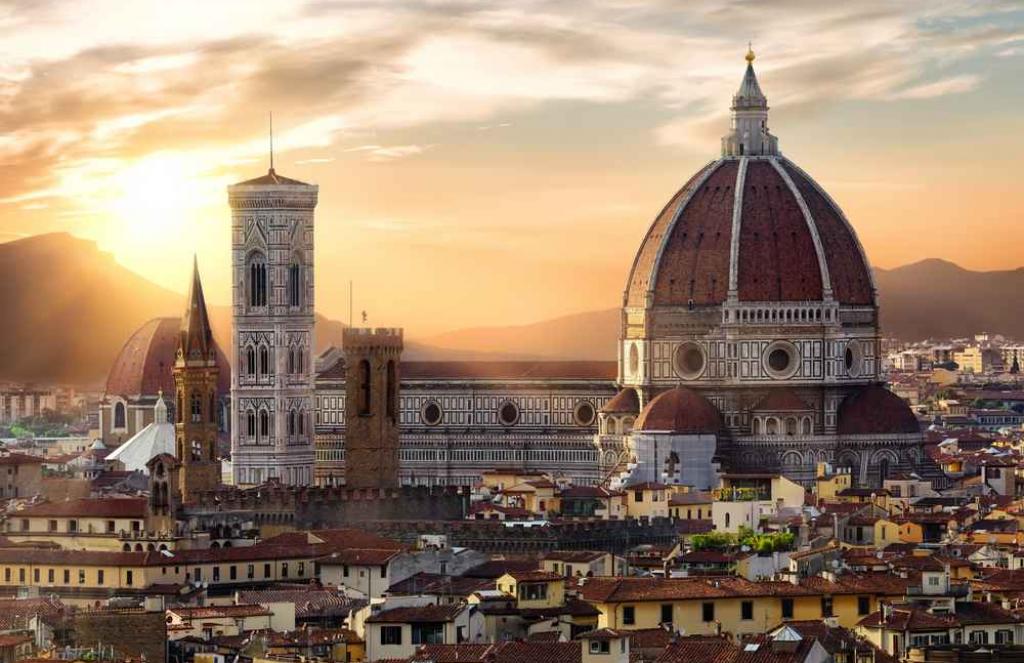Thessaloniki gets ready for its metro launch in November
The underground rapid transit lines have been under construction for almost two decades due to various project delays
 TheMayor.EU logo
TheMayor.EU logo 
Renting out a short-term room or flat in the Renaissance quarter of Florence will become a rare luxury, Source: Depositphotos
In fact, in the UNESCO-protected old town priority will be given to long-term tenants
The Italian city of Florence has become the latest in a string of European cities to put the brakes on the proliferation of short-term holiday rental services, such as Airbnb. Last week, Mayor Dario Nardella announced that no permits for new Airbnbs and other holiday rentals will be issued. However, the policy is not retroactive meaning that such short-term rentals that had been operating will remain on the market there.
In the context of growing tourist numbers and post-Covid recovery, it means that the influx of visitors seeking to experience a day or two in the Renaissance town will have to look further afield for accommodation.
The new policy defines a ‘short-term’ rental as covering anything under stays of 30 days.
The idea behind the new measure is to help address Florence’s chronic shortage of affordable housing for locals. Over the past couple of decades, thousands of buildings in the city’s city centre have been taken over by short-term rentals, such as Airbnbs, raising the prices and squeezing local residents out of the market.
The decision was also applauded by Federalberghi, the Italian trade association of hospitality businesses. Its Florence branch president, Francesco Bechi, stated that this would help restore the local community life in the city centre, which is also seen as an inseparable part of the local heritage.
Even more, Mr Bechi, quoted by La Nazione, hoped that this would serve as an “important signal that we hope will also be taken up by the national government, given that the measure hypothesized by the minister on the minimum two-night stay (rule) appears destined not to have great results”.
Other European cities that have decided to restrict short-term holiday rentals in favour of providing more housing for the local residents are Lisbon, Paris and Barcelona.

The underground rapid transit lines have been under construction for almost two decades due to various project delays

Now you can get your wine in Talence by paying directly in Bitcoin

That’s because the state has to spend money on updating the railway infrastructure rather than subsidizing the cost of the popular pass

Rethinking renewable energy sources for the urban landscape

The examples, compiled by Beyond Fossil Fuels, can inform and inspire communities and entrepreneurs that still feel trepidation at the prospect of energy transition

Now you can get your wine in Talence by paying directly in Bitcoin

The 10th European Conference on Sustainable Cities and Towns (ESCT) sets the stage for stronger cooperation between the EU, national and local level to fast track Europe's transition to climate neutrality.

At least, that’s the promise made by the mayor of Paris, Anne Hidalgo

The underground rapid transit lines have been under construction for almost two decades due to various project delays

At least, that’s the promise made by the mayor of Paris, Anne Hidalgo

Hostal de Pinós is located in the geographical centre of the autonomous region

Despite its church-y name, the district has long been known as the hangout spot for the artsy crowds

Urban dwellers across the EU are having a say in making their surroundings friendlier to people and the environment.

Forests in the EU can help green the European construction industry and bolster a continent-wide push for architectural improvements.

Apply by 10 November and do your part for the transformation of European public spaces

An interview with the Mayor of a Polish city that seeks to reinvent itself

An interview with the newly elected ICLEI President and Mayor of Malmö

A conversation with the Mayor of Lisbon about the spirit and dimensions of innovation present in the Portuguese capital














